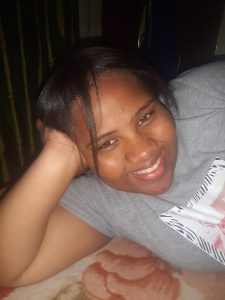Changing malodorous diapers. Extinguishing wild tantrums. Navigating your way through a minefield of sharp toys strewn across the carpet. Paying off titanosauric school fees. Tolerating cyclic teenage mood swings. Playing the role of the mediator in countless puerile sibling fights. And delivering hyperbolic speeches on why phone addicts are most likely to get hit by a car.
These are the painful scenarios that usually lurch to the foreground of my mind’s eye when I hear the word “mother”. Of course, such stereotypical and shallow associations are often spawned by young girls who are horrified by the prospect of bearing children. But it’s a justifiable fear. From what I’ve witnessed in my own home, being a mother does not even come close to relaxation, freedom, or any sort of rose-tinted fairy tale.
Instead, the notorious role gives rise to early-onset arthritis and suicidal tendencies. I mean, even one’s own flesh and blood can drive you over the edge of your life’s roofline. That’s why I applaud my grandmother for staying alive for so long; she’d fallen pregnant six times and even had to take care of other people’s children, yet she still hasn’t fired her brain with a bullet. Impressive, isn’t it? And let’s not forget about my dear mother who has to break her forty-six-year-old back nurturing two spoiled teenagers. Biologically speaking, I am an only child, but growing up with my cousin has also rendered me an older sister and my mom more tired than she would’ve been. After all, driving out the breadcrumbs that doze in the corners of your children’s lunchboxes isn’t exactly an exciting task. Nor is washing their laundry. Or constantly responding to their desperate cries for help when they can’t find their charger. If you didn’t know already, statistics indicate that 70% of a mother’s skillset comprises the abnormal ability to uncover your lost possessions in the exact same place you had claimed to look for them. (The remaining thirty per cent is dedicated to things like cleaning, cooking and carefully crafting eloquent letters to their child’s principal in which they complain about the school’s ignorance of bullies who freely roam their hallways.)
Is It a Girl? – A Creative Nonfiction by Verah Omwocha, Kenya
However, raising the youth does not merely bounce between domestic chores and joint disease (those are merely the stubborn symptoms of motherhood). When stepping into the intimidating shoes of a custodian, one must not perceive it as signing a dreadful eighteen-year contract pledging your allegiance to a mouthful of obligations or robotically reciting a vow of reluctant obedience. If that were the case, then Google would shamelessly kick out the term “household slave” when searching for appellatives synonymous with “mother”. Therefore, maternal guardians are not born under the tyrannical tongue of Simon Says. They’re not bound to a rulebook of do this and do that. In fact, they can quit at any time, either by adoption or abandonment. But that’s the thing—mothers don’t just frantically wave the white flag upon noticing an oncoming army of responsibilities. They persevere—not out of guilt, but out of love, a rarity we often fail to exhibit.
Motherhood – A Creative Nonfiction by Louise Venter, South Africa
Furthermore, I believe that God had planted the motherly seeds of competence in every female’s soul. And as time progresses, those seeds would germinate, breaking past the surface of immaturity and inexperience, manifesting their fruits through soothing lullabies, sincere embraces, and supportive smiles. Mothers were uniquely designed to withstand the weight of a swollen womb, constructed in such a way that modern teenagers would describe them as being “built differently”. Their patience miraculously overpowers their clenched fists and gritted teeth; compassion somehow clouds their callous skies; their tactful nature methodically dabs the tears from your eyes; their resilience sustains and preserves their strength. And it is those inherent qualities that usually cling to a woman’s identity.
Motherhood Through my Kaleidoscope – A Creative Nonfiction by Makia Lucy, Kenya
The moral of the story? —A mom isn’t a mom because she has the frustrating inclination to embarrass you in public or knows how you like your coffee (although, those are two of the fundamentals). As cliché as it sounds, a mother is defined by what’s on the inside. If not for them, we would all be trudging through life’s battlefield without a shield, sleeping on the streets instead of under a roof, because, ultimately, mothers are the embodiment of protection—the quintessence of a real home.

My name is Carmi Philander, a seventeen-year-old Christian whose overall dream is to become a world-renowned poet and multi-genre novelist. I was twelve when I wrote my book of twenty-five children’s short stories (Pampered Pets), which was only edited and published two years later. But this year I’ve decided to set aside my poetry for a while so that I can focus on my longer writings and hopefully be able to complete one of my first-ever novels/novellas!







